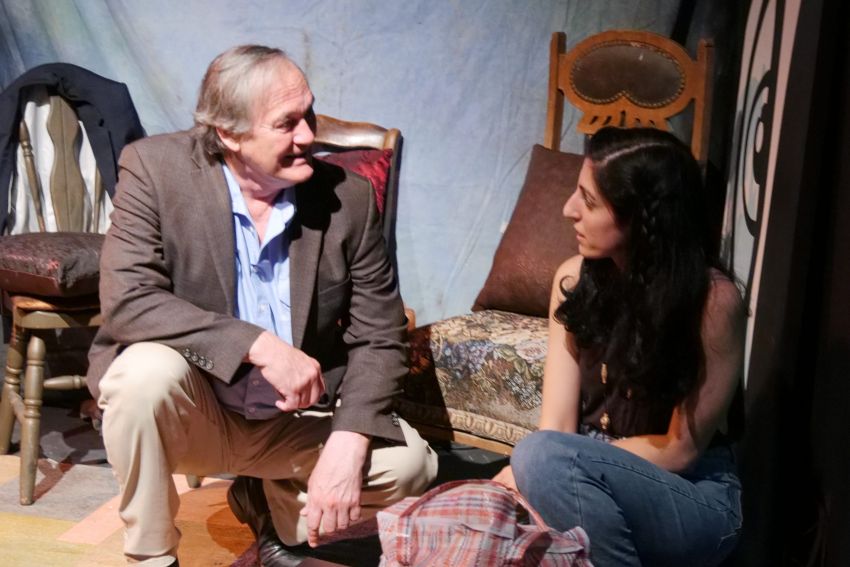
Blood on the Wattle
Written and directed by Geoffrey Sykes
With Befrin Axtjarn Jackson, Ken Welsh and Kloud Milas
Chippen Street Theatre, Chippendale
Until April 9
Blood on the Wattle is an intriguing re-framing to a contemporary setting of the kind of sharp rural political conflict first referred to by Henry Lawson in his poem “Freedom on the Wallaby”, written in 1891 to highlight the historic shearers’ strike of that year.
While the original line, “If blood should stain the wattle”, pointed to the threat of class violence in Australia's greatest industrial confrontation, the new play raises the current crucial issues of climate crisis and oppression of refugees.
Karl Matters (Ken Welsh) is the Country First federal member for Western Slopes, facing a personal and political dilemma over his parliamentary future. While he is conventionally right-wing on most issues such as “border security”, he is in conflict with his party leaders over climate change, and facing a possible threat to his preselection.
He is conflicted over the granting of coal mining lease extensions in his electorate, which are being opposed by many farmers in the district. A notable footnote is his outrage over climate activists protesting outside his electoral office, and his angry reaction to an article criticising the government in the radical paper, “Green Weekly”.
In his state of turmoil, his indefatigable electoral assistant Louise Patterson (Kloud Milas) tries to maintain order in the office and in his personal life. Then, he meets Vania Azadi (Befrin Axtjarn Jackson), a young woman refugee who has come to town to seek farm work nearby.
His whole world is turned upside down. He is overwhelmed by the poetry-loving Vania, and clumsily tries to woo her — which triggers a strong reaction, clearly bringing back sharp memories of violence and repression (possibly sexual assault) from her refugee past.
Despite this initial rejection, Vania later agrees to take up some part-time work in Karl's electoral office (much to the scepticism of Louise). From there, things take a surprising (and perhaps unbelievable) turn — which we will leave for people to see for themselves.
Geoff Sykes has done a great job of re-imagining the iconic Henry Lawson theme of Australian rural political conflict into a modern setting, with current issues at the fore. He may have stretched reality a little, with there being no sign at all of any movement on climate action by National Party MPs (perhaps the analogy is rather with some members of the fledgling, breakaway Shooters and Fishers Party, who have opposed coal seam gas drilling in their electorates recently).
The acting by all three performers is excellent, with each playing their parts with passion and conviction. The staging and arrangement of the set is also well executed.
Hopefully, this adventurous play will prompt further moves towards theatre as a comment on current political dilemmas — especially as the arts world begins to recover from the COVID-19 shutdown disaster.
There are hopeful signs, as the director notes: “This show is part of a sequence of theatre works seeking to re-imagine Australian identity in the current time.”
[For more information and to receive updates on future shows, visit playscript.net.au or contact playscript@gmail.com.]